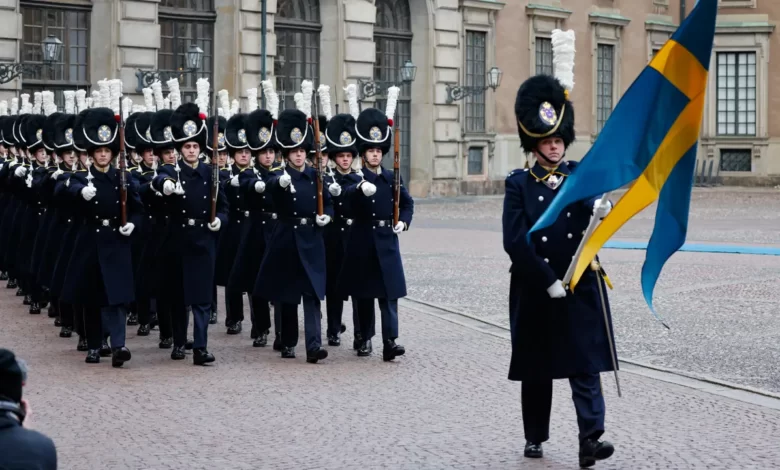
By Gunnar Ardelius, The Guardian.
As we prepare to join Nato, it’s time we stopped flattering ourselves and our history. We’ve never been morally superior.
The civil defence minister recently issued Swedes with the warning that “there could be war in Sweden”. The reactions were swift and loud: many people said they felt scared, others protested about the needlessly alarmist tone. The military commander-in-chief, who backed up the warning, was accused of being a warmonger. Deep down, most of us Swedes are still convinced that nothing bad can happen to us and that our neutrality, a synonym for our goodness, will protect us.
Sweden formally applied to join Nato in 2022 and has been stuck in the US-led alliance’s waiting room first by the political grandstanding of Turkey’s Recep Tayyip Erdoğan, and now by Viktor Orbán, who is holding up ratification as part of another poker game within the EU. But as Sweden prepares to abandon its cherished neutrality to join the alliance, it is time we stopped flattering ourselves and our history. We have never been a neutral country.
Our “neutrality” has had nothing to do with goodness or moral supremacy, rather with the ability to disregard our neighbours. Nor has it been neutrality that has saved us from war. Many other states in Europe were neutral in 1939, but were attacked anyway.
What has kept Sweden out of war has rather been luck combined with hypocrisy, the ability to outwardly say one thing but in practice do another. The most famous example is from the second world war, when iron ore exports from Sweden were of decisive importance for the German war industry.
As a Swede, it is easy to believe the myth that Sweden – because it has not officially been at war since 1814 – does not have a violent history. There is a collective inability, a sheer unwillingness to see our own brutality and the consequences of our nation’s silence. But we live in a dynamic world where international conflicts have an immediate resonance in our local communities. Sweden itself has changed faster than our self-image has had time to. We still cling to the creed that that we are a peaceful society for example, but no other country in Europe shows increases in gun violence comparable to that in Sweden.
A re-evaluation of the Swedish national psyche is overdue. Our silence and inability to take a stand is not, as we Swedes have been taught, a passive or noble act, it in fact often contains violent activity and effort.
The delusion that Sweden, together with Switzerland, is on a moral Alpine peak, is one that most people have received with their mother’s milk. Swedish names such as Olof Palme and Dag Hammarskjöld, saintly figures in the pantheon of international diplomacy, came to symbolise a nation that was as dedicated as they were to peace and international cooperation.
I am just one of countless Swedes who has travelled the world with a smug smile on my face and answered questions about the Swedish model, all the advantages of the Swedish security system and our neutrality, which for many decades gave us the role of mediator and world conscience. We have long connected our country’s strong welfare provision with our foreign policy stance, but this mental Venn diagram is now broken.
Sweden has long prided itself on economic equality, but the assets of our rich-list keep growing, just as the proportion of economically disadvantaged households expands. Between 1996 and 2021, the number of billionaires in Sweden increased by 1,700%, according to the journalist Andreas Cervenka. In his book Greedy Sweden, he identified 82 Swedish dollar billionaires who together own assets to the value of nearly half of Sweden’s GDP.
Much of the public sector has been deregulated and privatised, including the railways, which has led to constantly cancelled and delayed departures. If the Germans had asked us to transport iron ore to the Nazi war effort with the current state of the trains, we would have had to say no, it can’t be done.
A passive-aggression has seeped into our society: we have dismantled large parts of the welfare system and replaced it with inequality, while we scapegoat refugees for most ills. The far-right influence over the current coalition government has become apparent, with hardline anti-immigration attitudes and policies hostile to multiculturalism now entirely mainstream.
In practice, Sweden is as principled as Groucho Marx. We hold fast to the country’s principles, but if the rest of the world doesn’t like them well … we have others. In this way, Nato accession is entirely in keeping with our direction. We have always packaged our fear and despondency as moral supremacy, but that was an illusion.
That Sweden is now ready to join Nato is about pragmatism. The war in Ukraine has come too close, we are too scared and too small to cope and we have no principles left to sell.





